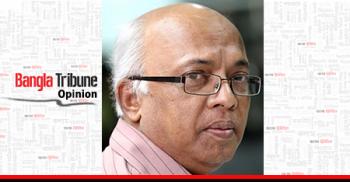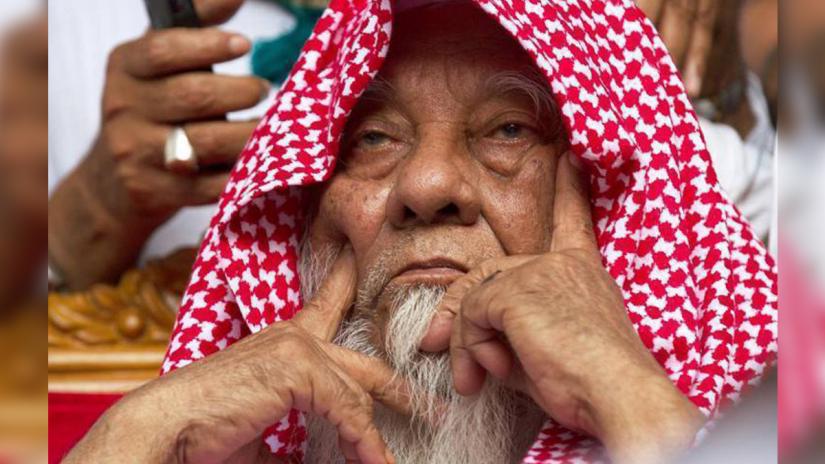 For a good many days in 1953, Lahore was a hotbed of sectarian conflict. Hundreds of Ahmadiyyas came under attack and were murdered by the fanatical members and followers of the Jamaat-e-Islami. The outfit’s leader, Syed Abul A’ala Maududi, having vehemently opposed the creation of Pakistan and condemned Mohammad Ali Jinnah as Kafir-e-Azam and yet unable to change the course of events, was now determined to give Pakistan a makeover. It was his opinion that only his brand of faith mattered. And nowhere in his scheme of things did the Ahmadiyya Muslim Jamaat, otherwise known as Qadianis and practising a form of Islam which did not resonate with a majority of Muslims, have a place.
For a good many days in 1953, Lahore was a hotbed of sectarian conflict. Hundreds of Ahmadiyyas came under attack and were murdered by the fanatical members and followers of the Jamaat-e-Islami. The outfit’s leader, Syed Abul A’ala Maududi, having vehemently opposed the creation of Pakistan and condemned Mohammad Ali Jinnah as Kafir-e-Azam and yet unable to change the course of events, was now determined to give Pakistan a makeover. It was his opinion that only his brand of faith mattered. And nowhere in his scheme of things did the Ahmadiyya Muslim Jamaat, otherwise known as Qadianis and practising a form of Islam which did not resonate with a majority of Muslims, have a place.
Maududi and his followers went on a rampage burning Ahmadiyya homes and putting Ahmadiyyas to sudden death. On the streets of the historic city, blood flowed and would not stop until General Azam Khan imposed martial law and rounded up Maududi and all his cohorts. Placed on trial for his crime, the Jamaat leader was condemned to death. He was soon pardoned and came back to politics, to play a murderous role once more in occupied Bangladesh in 1971. The members of the Jamaat killed, pillaged and raped, in league with the soldiers of the Pakistan occupation army, in the land of Bengalis and would not stop until Pakistan was buried under a mountain of corpses late that year. A few days ago, Shah Ahmad Shafi, the chief of the Hifazat-e Islam, demanded that Bangladesh’s Ahmadiyyas be declared non-Muslim and the proposed convention of the Ahmadiyya Muslim Jamaat in Panchagarh, slated for later this month, be banned. Shafi’s demands carried ugly echoes of Maududi’s intolerant politics in the 1950s. Back then, Maududi vowed to lead a movement to strip Ahmadiyyas of their Muslim appellation. In 2019, Shafi promised to launch an offensive to have Ahmadiyyas be pushed out of the faith they identify with. The long strain of sectarian intolerance was at work again. Eerie reminders of what Maududi and his men did, for a second time in Pakistan in 1974, came alive for us last week.
A few days ago, Shah Ahmad Shafi, the chief of the Hifazat-e Islam, demanded that Bangladesh’s Ahmadiyyas be declared non-Muslim and the proposed convention of the Ahmadiyya Muslim Jamaat in Panchagarh, slated for later this month, be banned. Shafi’s demands carried ugly echoes of Maududi’s intolerant politics in the 1950s. Back then, Maududi vowed to lead a movement to strip Ahmadiyyas of their Muslim appellation. In 2019, Shafi promised to launch an offensive to have Ahmadiyyas be pushed out of the faith they identify with. The long strain of sectarian intolerance was at work again. Eerie reminders of what Maududi and his men did, for a second time in Pakistan in 1974, came alive for us last week.
Twenty-one years after 1953 and three years after 1971, Maududi and the Jamaat-e-Islami were once again ready to wage a war based on hate. Ahmadiyyas came under assault all over Pakistan, to a point where the government of Zulfikar Ali Bhutto, no model of tolerance itself, was compelled to decree that Ahmadiyyas were no part of the Islamic community. At one simple stroke of appeasement, Pakistan’s Ahmadiyyas were relegated to being a minority. They remain a persecuted lot today. No one in Pakistan wants to remember the two globally respected Ahmadiyyas who once were reasons for Pakistani pride — Sir Muhammad Zafrullah Khan, Pakistan’s first foreign minister and later its permanent representative to the United Nations, and the Nobel-winning physicist Abdus Salam. They have been airbrushed out of history.
It is similar sectarian hate putting paid to all thoughts of religious inclusivity which the Hifazat-e Islam chief has vowed to hold aloft in Bangladesh. No, we will not go for the discredited cliché of glibly suggesting that ours is a land of communal harmony, not after the obscene manner in which Hindu religious idols and temples are vandalized, not after the way Buddhist monasteries come under assault in Ramu. But, in the larger sense, liberality has consistently been an article of faith with Bengalis across the spectrum. Our social structure remains embedded in the idea of inclusivity being our claim to our place in the world.
 The question is not one of individual religious belief; it is not one of the truth of one faith and controversy related to another. The plain point is that being judgmental in matters of faith is an invitation to chaos. When a poor Christian woman is accused of blasphemy, is declared innocent by the law and yet cannot find sanctuary beyond her homeland — and this is in Pakistan — it is an assault on God. When fanatical Hindus in India go all the way toward taking the life of a poor Muslim even as they defend the sanctity of a cow, religion takes a bad mauling. When a crude follower of Christianity will stop at nothing to burn the Quran in order to please his God, Jesus goes through his pains yet once more. When bigoted Jews cheerfully seize land owned by Palestinians and fill them with illegal settlements, they militate against the message of the Torah. When Muslims trapped in the straitjacket of Wahhabism think nothing of demanding that Ahmadiyyas be stopped from congregating at their assembly, that indeed they be exiled into minority status, it is the beauty of religious diversity which gets to have bad scratches all over.
The question is not one of individual religious belief; it is not one of the truth of one faith and controversy related to another. The plain point is that being judgmental in matters of faith is an invitation to chaos. When a poor Christian woman is accused of blasphemy, is declared innocent by the law and yet cannot find sanctuary beyond her homeland — and this is in Pakistan — it is an assault on God. When fanatical Hindus in India go all the way toward taking the life of a poor Muslim even as they defend the sanctity of a cow, religion takes a bad mauling. When a crude follower of Christianity will stop at nothing to burn the Quran in order to please his God, Jesus goes through his pains yet once more. When bigoted Jews cheerfully seize land owned by Palestinians and fill them with illegal settlements, they militate against the message of the Torah. When Muslims trapped in the straitjacket of Wahhabism think nothing of demanding that Ahmadiyyas be stopped from congregating at their assembly, that indeed they be exiled into minority status, it is the beauty of religious diversity which gets to have bad scratches all over.
We will not go down that road. We will not decide for others what gods they should pray to. We will not pit the mosque, the church, the temple and the synagogue one against the other. We will not listen to the voices of medievalism telling us not to send our daughters to school and our women to their workplaces. We will not permit communalism to pollute our historical secularism.
Indulging bigotry is to open the floodgates to unmitigated disaster. Appeasing those who would tear us away from our humanism will strike at the very reason for our being.
We will not go down that road.
Syed Badrul Ahsan is Editor-in-Charge, The Asian Age.


